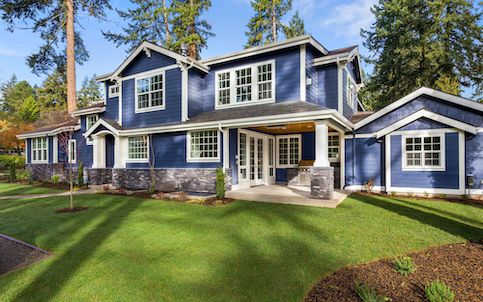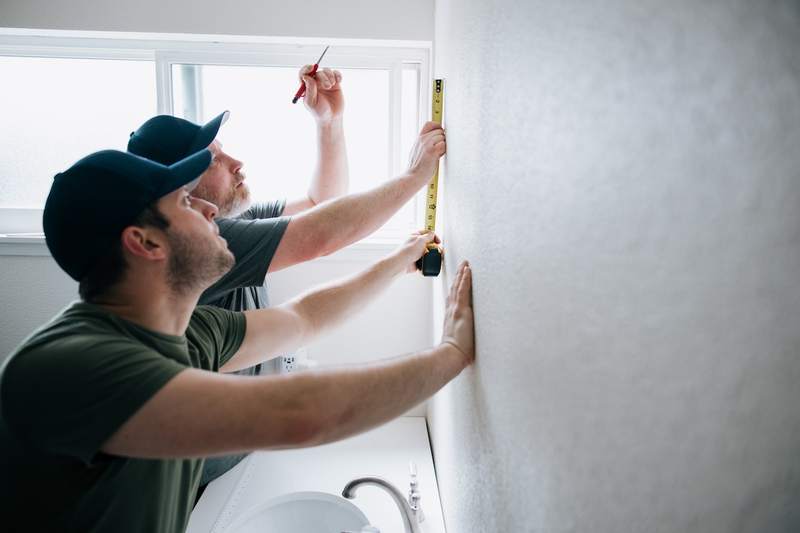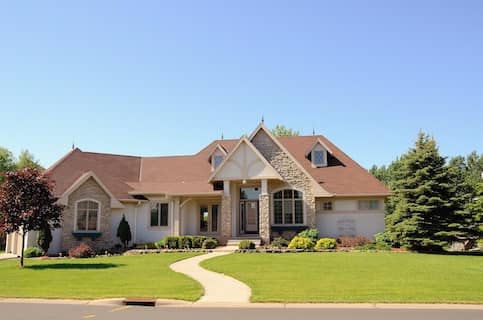Mortgage Rate Lock: Get A Rate That Works For You

Imagine you’re all set up to close on a home with an affordable mortgage interest rate, only to learn when you’re ready to close that rates have gone up since your loan was approved and you’re going to pay more than you expected. If this scenario keeps you awake at night, a rate lock can freeze your interest rate and make sure it doesn’t change before closing. Here’s what you need to know about how rate locks work and when you might want to consider buying one.
Key Takeaways:
- A mortgage rate lock prevents your interest rate from increasing between the loan offer and closing.
- A rate lock can save you money on interest, but you may be charged an upfront fee.
- If you buy a rate lock, remember that it typically only lasts 30 to 60 days.
What Is A Mortgage Rate Lock And How Does It Work?
It generally takes 45 to 60 days to close on a house. During that time, mortgage interest rates can fluctuate, and an increase in your interest rate means you’ll pay more for your loan. A rate lock freezes the interest rate on your loan offer, typically for 30, 45 or 60 days, so you can close at the rate you expect.
Say your lender approves you for a $400,000 30-year fixed-rate loan and provides a loan estimate with an interest rate of 7%. The monthly payment on that loan is $2,661 for principal and interest, and you’d pay $558,036 in total interest. But if interest rates have gone up to 7.25% by the time you close on the loan, your monthly payment will be $2,729 and you’ll pay $582,334 in total interest. Locking in the original rate of 7% would save you $68 a month and $24,298 in total interest.
However, there’s no guarantee that rates will go up. If you lock in your rate and market rates decrease, you’re still obligated to pay the higher, locked-in rate at closing unless your rate lock has a float-down option that allows the locked rate to decrease.
If rates are the same at closing as when you locked in your rate, you’ll be out any fee you’ve paid for the rate lock, but you will still have avoided a rate increase.
What’s Your Goal?
Home Purchase
Home Refinance
Tap Into Equity
How To Lock In A Mortgage Rate
Your rate affects your monthly mortgage payment and how much interest you pay on your loan, so it saves you money to find the lowest rate and hang on to it. A difference of even a fraction of a percentage point makes a big difference in how much you pay over the life of your loan. Here’s how to lock in your rate.
1. Choose A Lender And Apply For A Mortgage
When you can lock in your rate usually is up to your lender. You may be able to lock it in as soon as you choose a lender and a mortgage, or you may have to wait until you have a signed purchase and sale agreement or until your loan is approved. When you receive the loan estimate from your lender, it will tell you whether your rate is locked at the top of Page 1. If you’re refinancing, you usually can lock the rate when you apply for the new loan.
2. Know How Much A Mortgage Rate Lock Costs
Fees vary, but there’s often a cost for locking your rate. Some lenders factor the price of a rate lock into the interest rate offered on the loan estimate. Other lenders will charge between 0.25% and 0.5% of your loan amount. If you need to extend your rate lock, you’ll likely need to pay more on top of what you’ve already spent.
3. Make A Rate-Lock Agreement
Your lender should ask if you’d like to lock your rate. If they don’t, take it upon yourself to ask. They’ll explain the terms of the agreement to you, and you’ll move on in the home buying process while they finalize your home loan.
4. Know How Long Your Rate Lock Lasts
Rate locks are usually good for 30 to 60 days. You should be mindful of how long you think it will take to close on your house when you lock your rate. Your lender can provide a reliable estimate for this.
5. Ask Your Lender About A Rate Lock Extension
You might find that it will take longer to close the sale than expected and you need to extend the rate lock. When your lock period expires, you’ll likely have one of two options:
- Pay an additional fee to extend the rate lock.
- Let it expire and accept the current interest rate.
Talk to your lender in advance about policies regarding lock expirations. If you need an extension, ask for it. The lender may charge you, but the extra cost can be worth it if it means keeping your monthly payments low.
6. Understand That Rates May Drop
When you lock in your rate, be prepared for the possibility that rates may go down. Your options vary depending on your rate-lock agreement. In some cases, you may be able to withdraw your application and reapply for your loan, but this will delay the sale. Talk to your mortgage lender. Losing a borrower between a loan offer and closing is known as a fallout risk, and lenders often will work with you to prevent that from happening.
Ready To Become A Homeowner?
Get matched with a lender that can help you find the right mortgage.
How Long Can You Lock In A Mortgage Rate?
Rate locks usually are good for 30, 45 or 60 days, though some last for 15 days. In some cases, it’s possible to extend your rate for even longer. The lock period is based on several factors, including your loan terms, loan type and your lender.
There are cases where your mortgage rate still can change even if you’ve locked your rate. If there are changes to your income, credit score, debt-to-income ratio or loan amount, your lender can void your rate lock.
Take The First Step To Buying A Home
Find a lender that will work with your unique financial situation.
Know Your Mortgage Options
To decide if a rate lock is right for you, it’s important to know your options. Here’s a look at some different scenarios.
Lock Your Interest Rate
If interest rates are low and you’re happy with the rate you’ve been offered in your loan estimate, you might want to lock it in. That way, if interest rates increase before closing, you’ll keep your original rate. For example, interest rates hit historic lows in 2020. If you bought a home that year and got offered a 2% interest rate, you might have wanted to lock it in, knowing you were getting a good deal.
Float Your Interest Rate
If you’re unhappy with your interest rate and think rates might go down between the loan offer and closing, you can skip the rate lock and let it float with the hope that it will decrease before you close. Another reason to float your rate is if your closing timeline exceeds your lender’s rate-lock period. Some lenders offer a float-down option, which means your locked rate will decrease to market rates if they drop but won’t increase if rates go up.
Wait And Refinance
If you skip the rate lock and your mortgage rate increases before closing, you can refinance later, should interest rates drop.
FAQ
Here are answers to some common questions about mortgage rate locks.
The Bottom Line
Locking in your mortgage rate can be worth it, depending on how much it costs and what market rates are doing. Knowing that you can’t control market rates, a rate lock can make the process more certain and less stressful. It’s best to understand your lender’s rate-lock policies, how much one costs, and how long it’s effective to ensure you’re comfortable with your final rate at closing.
More From Quicken Loans:
Rory Arnold contributed to the reporting of this article.











